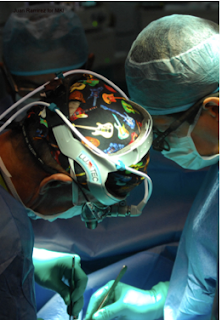HEAVY BUT HAPPY HEARTS
As we wrap up our mission here at the Hospital del Ninos Bustamante, our hearts are heavy. Heavy with relief, joy, sadness, and every emotion that we have felt over the past two weeks. We have watched as a heart surgeon hand massaged a babyʼs heart and started it beating again. We have witnessed a mothers' pure joy when she heard that her child who had no chance of survival without surgery had come through the surgery. We have experienced crushing sorrow when we lost little Mateo, a six-month old baby with severe heart disease. And we rejoiced when Richard didn't lose his battle and rebounded from critical condition to live another day.
These are the daily milestones we live for and fight for. These children are who we work for. These are the parents who are our heroes. This is why MKI exists.
We would like to thank all those that make this happen. We have doctors and nurses from all around the world helping us; volunteers; local nurses and doctors; many government officials in Ecuador; the staff and management of Hospital del Ninos Bustamante; our MKI staff; and the Fundacion El Cielo Para Los Ninos Del Ecuador and many, many others.
Most importantly, we would like to honor the people of Ecuador for giving us their faith; welcoming us to their country, trusting us with the lives of their sick children, and allowing us the awesome responsibility of performing surgery on them. And to think...they thank us.
Gracias mis amigos. Vaya con dios.
CON PESAR, AUN CUANDO NUESTROS CORAZONES ESTAN FELICES
Al terminar nuestra misión aquí en el Hospital de los Niños Bustamante, nuestros corazones están apesarados. Apesarados por el descanso, alegría, tristeza, y otras emociones que hemos sentido durante las últimas dos semanas. Hemos observado a un cirujano masajear el corazón de un bebé y hacerlo latir de nuevo. Hemos sido testigo de un niño desahuciado por falta de cirugía y de la alegría de su madre cuando escuchó que la cirugía lo había slavado. Hemos sentido un gran pésame al perder al pequeño Matéo por su enfermedad del corazón. Y nos llenamos de alegría cuando el pequeño Richard no perdió su batalla y se recobró de su condición crítica.
Estos niños son nuestras metas diarias por las que vivimos y luchamos. Trabajamos por ellos. Ellos son los padres heroicos. Es por eso que MKI existe.
Queremos dar las gracias a todos los que hacen ésto posible. Tenemos enfermeras y doctores de todas partes del mundo ayudándonos, voluntarios, enfermeras y doctores locales, muchos oficiales de gobierno del Ecuador, los empleados y jefes del Hospital de los Niños Bustamante, nuestro cuerpo de MKI, y la Fundación El Cielo Para Los Niños del Ecuador, y muchos, muchos más.
En principal, queremos honrar a la gente del Ecuador por su fe en nosotros, por acogernos en su país, por confiarnos con las vidas de sus niños y permitrnos la gran responsabilidad de ejecutarles cirugías. Y pensar ... que ellos nos dan las gracias.
Gracias, amigos. Quédense con Dios.

























